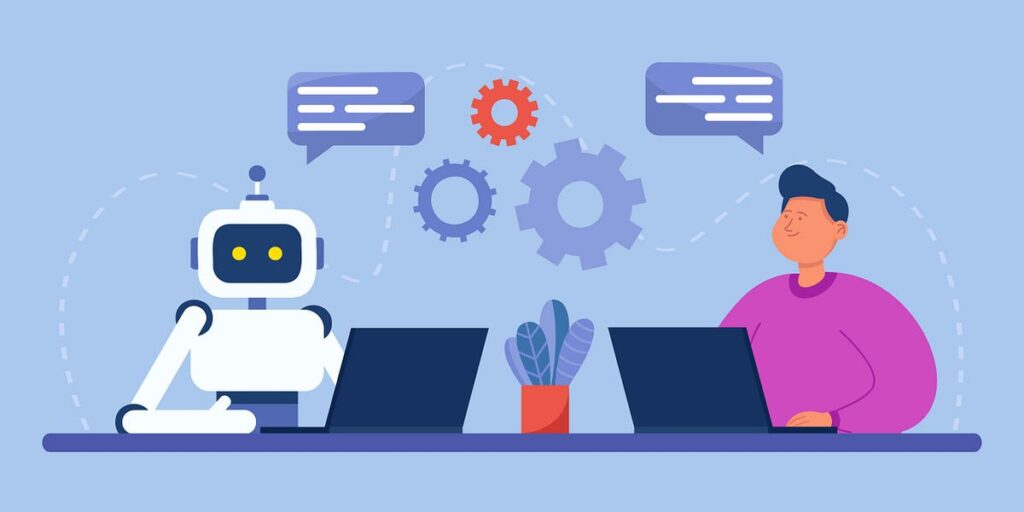Custom GPTs: Precision, Personalization and Performance in AI
In the dynamic landscape of artificial intelligence, one concept has been making waves in recent years: custom GPTs. These customized iterations of OpenAI’s powerful language model, GPT (Generative Pre-trained Transformer), offer a plethora of opportunities for businesses, researchers, and enthusiasts alike. From enhancing precision to tailoring outputs to specific needs, custom GPTs are at the forefront of AI innovation.
Custom GPTs ensure consistency across all communication channels, maintaining brand voice and identity regardless of the volume of content generated. This consistency fosters trust and loyalty among customers, ultimately contributing to long-term success.
Understanding Custom GPTs
Custom GPTs are essentially tailored versions of the original GPT model, honed through fine-tuning specific datasets or tasks. This process enhances their capabilities, allowing them to excel in various domains like code generation and content creation. By refining the model’s parameters based on targeted data, these iterations exhibit specialized behavior, adapting to diverse requirements with precision and efficacy.

Whether crafting code or crafting content, these customized GPT variants showcase versatility and proficiency, offering tailored solutions for a spectrum of applications and challenges.
Precision in Action
One of the primary benefits of custom GPTs is their ability to deliver precise outputs tailored to specific domains. For instance, in the field of medicine, a custom GPT trained in vast medical literature can provide accurate summaries of research papers, assist in diagnosing diseases, or even generate personalized treatment plans.
Personalization at Scale
Personalization is another area where custom GPTs shine. By training the model on user interactions or preferences, businesses can leverage these AI systems to deliver personalized recommendations, customer support responses, or product suggestions. This level of personalization enhances user experience and fosters stronger engagement, ultimately driving business growth.
Performance Boost
Custom GPTs also offer performance enhancements over their generic counterparts. By fine-tuning the model on domain-specific data, researchers can achieve higher accuracy and efficiency in their tasks. Whether it’s text generation, sentiment analysis, or language translation, custom GPTs consistently outperform generic models in domain-specific scenarios.
Latest Developments in Custom GPT Technology

The field of custom GPTs is evolving rapidly, with continuous advancements pushing the boundaries of what’s possible. Recent developments include:
1. Multimodal Capabilities:
Custom GPTs are now being integrated with visual or audio inputs, expanding their understanding and content-generation abilities across multiple modalities. This advancement enables models to comprehend and produce content that incorporates images, videos, and audio cues, enhancing their versatility in various applications.
2. Zero-shot Learning:
Recent enhancements in zero-shot learning empower custom GPTs to generalize across tasks without explicit training. This means they can adapt to diverse scenarios and perform tasks they haven’t been explicitly trained for. By leveraging broader knowledge and context, these models demonstrate improved flexibility and applicability in real-world settings.
3. Ethical Considerations:
Addressing ethical concerns surrounding bias, fairness, and safety is becoming a paramount focus in custom GPT development. Robust ethical guidelines and mitigation strategies are being implemented to ensure these models uphold principles of fairness, inclusivity, and responsible AI usage, promoting trust and accountability in their deployment across various domains.
4. Federated Learning:
Custom GPTs are exploring federated learning techniques to train on decentralized data sources while maintaining privacy and security. By distributing the training process across multiple devices or servers, federated learning allows models to learn from diverse data without compromising individual privacy, making custom GPTs more adaptable and scalable in real-world applications.
5. Real-time Applications:
Custom GPTs are being optimized for low-latency, real-time applications like chatbots, virtual assistants, and interactive storytelling platforms. These optimizations focus on reducing response times and improving performance, enabling seamless interactions between users and AI systems in dynamic and time-sensitive environments, and enhancing user experience and engagement.
Conclusion
Custom GPTs represent a paradigm shift in AI, offering unparalleled precision, personalization, and performance across a wide range of applications. As technology continues to evolve, so too will the capabilities of these customized language models. By harnessing the power of custom GPTs, businesses, and researchers can unlock new opportunities, drive innovation, and shape the future of AI-driven solutions.
In this era of rapid technological advancement, embracing custom GPTs isn’t just a choice—it’s a strategic imperative for those seeking to stay ahead of the curve. So, whether you’re a startup looking to revolutionize customer engagement or a researcher pushing the boundaries of AI, custom GPTs are your key to unlocking the full potential of artificial intelligence.









